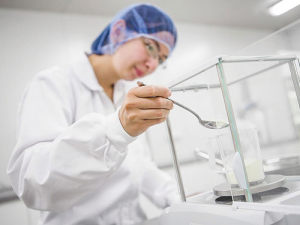Many of the requirements for isolating and manufacturing plant proteins are similar to those for dairy protein, says the ‘Opportunities for Plant Protein’ report released last month.
“Our challenge is to extract and apply the engineering expertise and manufacturing capabilities currently held within our dairy industry to develop new opportunities in plant-based proteins.”
Sustainability limits may mean many niche NZ locations better suit plant-based protein production than animal-based protein production, the report says.
“Crops that require fewer inputs than dairy or meat should be integrated into crop rotations to reduce the future environmental impact of NZ’s annual land use cycle and export food production.
“To take advantage of the new consumer trends towards plant-based foods and ‘flexitarian’ lifestyles there are significant opportunities for NZ to expand and develop plant-based protein sources.”
NZ-grown crops that could be used as protein sources for human consumption include alfalfa (lucerne), barley, beans, canola, hemp, kumara, linseed, white maize, oats, peas, potato, walnut and wheat.
Most plant proteins used in the NZ food industry are currently manufactured overseas, the report says. While soy and lupin are the two highest protein producers, they are challenging to grow in NZ because of their GM status and climatic requirements.
A challenge for plant protein ingredients isolated from single crops remains their “incomplete” essential amino acid content. Therefore, combinations of protein sources are often required to deliver a complete diet. This is one area where NZ’s dairy manufacturing expertise could be adapted to develop new opportunities, the report says.
There is significant opportunity for plant-based protein foods with higher consumer acceptability, the report says.
“Functional plant proteins with nutritional attributes continue to meet specific market needs and avoid becoming commoditised. This premium positioning suits NZ’s globally niche food manufacturing sector.
“NZ has led the thinking on ‘total utilisation’ from the early 1970s when we pioneered the value-add from dairy waste streams by producing whey.
“Following this approach, it is timely also to recognise that isolation of proteins from plant sources is most economical when the protein component is one of a number of products isolated during a manufacturing process.
“Many of the materials that could be used to produce plant proteins are themselves ‘by-products’ or ‘waste streams’ from the production of other food products (e.g. potato and wheat proteins are generally produced as by-products of the isolation of food starches).
“Although there are significant challenges to extracting protein from these materials, the sheer volume of waste streams makes them attractive targets for further R&D of foods and bio-based materials.”
There is significant international competition and “trade secret” and patented knowledge of production processes.
“To establish plant protein production industries in NZ we need to use our research capabilities to establish our own ‘trade secret’ processes and protocols for premium plant-based protein foods. NZ has capability in protein research, materials isolation and engineering and in food product development and sensory science.”

















